Future Food

What are the implications of climate change for future generations ?
Climate change has significant implications for future generations, including rising sea levels, extreme weather events, food security, and health impacts. Rising sea levels can lead to flooding, displacement of communities, and loss of habitat for marine life. Extreme weather events can cause loss of life, destruction of infrastructure, and long-term changes in ecosystem structure and function. Climate change can also affect global food production, particularly in regions that are already vulnerable to food insecurity. Changes in temperature and precipitation patterns can affect crop yields, pest and disease outbreaks, and water availability for agriculture. Additionally, climate change can have significant impacts on human health, including increased risk of infectious diseases, respiratory illnesses, and mental health problems. The challenges presented by climate change require urgent action from individuals, governments, and organizations around the world to mitigate its effects and ensure a sustainable future for all.

What is the impact of climate decisions on future generations ?
This text discusses the far-reaching impacts of climate decisions on future generations, including environmental issues such as rising sea levels and loss of biodiversity, economic shifts related to job markets and infrastructure costs, and societal effects like health concerns and political stability. It emphasizes the importance of taking immediate action to mitigate these impacts and create a sustainable future for all.
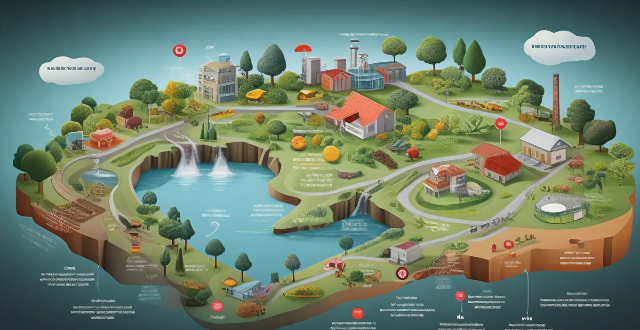
How does climate change affect agriculture and food security ?
Climate change significantly affects agriculture and food security by increasing extreme weather events, altering crop yields and quality, impacting livestock, and raising concerns about food access, affordability, and biodiversity loss. Adaptation and mitigation strategies such as sustainable farming practices, water management, genetic research, and policy initiatives are essential to build a resilient food system.

What are the potential long-term consequences of climate change for future generations ?
The potential long-term consequences of climate change for future generations include environmental, social, and economic impacts. Environmentally, rising sea levels can cause coastal erosion and loss of island nations, while extreme weather events like hurricanes and wildfires become more frequent. Biodiversity loss is also a major concern, with species extinction and the spread of invasive species disrupting ecosystems. Socially, food security is threatened by changes in crop yields and water scarcity, while health risks increase due to heat-related illnesses and the spread of diseases. Displacement and migration may lead to conflict and instability. Economically, decreased productivity in agriculture and fisheries, increased adaptation and mitigation costs, and job losses contribute to economic instability. Addressing climate change requires global cooperation and significant investments in both adaptation and mitigation strategies to ensure a sustainable future.

How does climate change affect food security and nutrition ?
Climate change significantly impacts global food security and nutrition by causing extreme weather events, altering ecosystems, reducing water availability, affecting marine life, posing agricultural challenges, and diminishing nutrient intake. Mitigation strategies include sustainable agriculture practices, dietary diversification, and research and development to ensure future food security and nutrition.

How does space exploration inspire future generations ?
Space exploration has been a source of inspiration for future generations in various ways, including igniting curiosity and wonder, advancing scientific knowledge, promoting international collaboration, encouraging careers in STEM, inspiring creativity and art, and nurturing resilience and perseverance. As we look toward the future, space exploration will continue to capture the imagination of young people around the world and spur them on to become the next generation of explorers, scientists, and engineers.
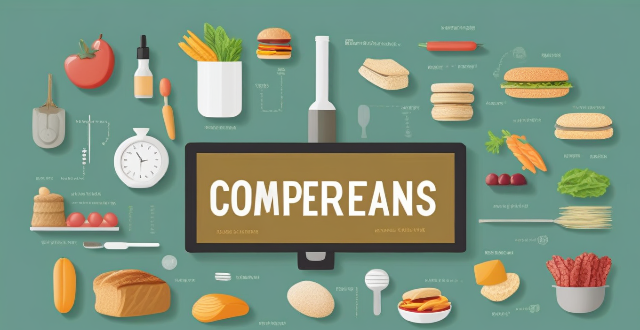
How can small food businesses ensure they are compliant with food safety regulations ?
The text provides a comprehensive guide on how small food businesses can ensure compliance with food safety regulations. It emphasizes the importance of compliance in protecting consumer health, avoiding legal consequences, and enhancing brand reputation. The steps for ensuring compliance include understanding the regulations, training staff, implementing GMP, using quality ingredients, monitoring and testing, and having a plan for non-compliance. Following these steps can help small food businesses meet legal requirements and assure customers of the highest standards in food safety, ultimately leading to customer loyalty and a strong brand reputation.

What are the implications of climate change for future generations, specifically children ?
Climate change poses significant challenges and threats to future generations, particularly children. The implications of climate change for children are multifaceted and far-reaching, affecting their health, safety, education, and overall well-being. Health implications include increased respiratory problems, spread of infectious diseases, and nutritional deficiencies due to extreme weather events and changing precipitation patterns. Safety risks involve natural disasters and heat stress, while education is affected by disruption of learning and limited access to educational resources. Overall well-being implications include mental health issues, loss of cultural heritage, and economic impacts on families and communities. Addressing these challenges requires urgent action to mitigate the effects of climate change and adapt to its inevitable consequences, ensuring a healthier, safer, and more equitable future for all children.

How has technology improved food safety monitoring and compliance ?
This article discusses how technology has played a crucial role in enhancing food safety measures. It covers traceability systems, sensor technology, data analytics, automation and machine learning, and blockchain technology. Traceability systems allow for the tracking of products from farm to table using barcodes, QR codes, and RFID tags. Sensors monitor various parameters that impact food safety, such as temperature, humidity, and chemical composition. Data analytics tools process vast amounts of collected data to identify patterns, trends, and potential risks. Automated systems reduce human error and increase efficiency in food processing plants, while machine learning algorithms enhance decision-making processes based on learned behaviors from past data. Blockchain offers a decentralized way to record transactions securely and transparently when applied to food supply chains. By leveraging these technological advancements, we can work towards a future where food safety concerns are minimized, benefiting both consumers and industry stakeholders alike.

What is the future of e-sports and its integration with technology ?
E-sports, or electronic sports, have seen a meteoric rise in popularity over the past decade. As technology continues to evolve at a rapid pace, the future of e-sports looks brighter than ever before. In this article, we will explore the potential integration of e-sports with technology and what it means for the future of competitive gaming.

How important is composition in food photography ?
Composition is essential in food photography for creating visually appealing images. Techniques such as focusing on the subject, using negative space, incorporating leading lines, following the rule of thirds, and experimenting with color and contrast can enhance the visual appeal of food photographs.

What is the significance of traceability in the food supply chain for food safety ?
Traceability in the food supply chain is crucial for food safety, enhancing transparency, facilitating recalls, improving quality control, supporting regulatory compliance, enabling better risk management, and promoting sustainable practices.

How are food safety regulations enforced by governments ?
Governments around the world enforce food safety regulations through various methods, including legislation and policy development, inspection and compliance checks, licensing and certification, education and training, penalties and enforcement actions, public communication, and international cooperation. These efforts aim to protect consumers from harmful substances and contaminants in food products while promoting fair trade practices among producers and retailers.

Can we trust climate models for future predictions ?
Climate models are designed to predict future changes in the Earth's climate based on scientific principles and past observations. Trust in these models depends on factors such as their scientific foundation, data quality, model complexity, intercomparison, historical validation, uncertainty quantification, and continuous improvement. While no model can perfectly predict the future, climate models offer valuable insights into potential future scenarios based on current knowledge and understanding. However, it is important to recognize their limitations and uncertainties when interpreting their results.

What are the key principles of food safety ?
The text outlines the key principles of food safety, which include cleanliness, avoiding cross-contamination, thorough cooking, proper storage, and using safe water and ingredients. By following these guidelines, individuals can reduce the risk of foodborne illnesses and ensure that their meals are safe for consumption.

Can eating organic food prevent diseases ?
Eating organic food may offer some potential benefits for disease prevention, such as reduced exposure to pesticides and chemicals, higher antioxidant levels, and better nutrient content. However, the overall evidence supporting its ability to prevent diseases is limited, and other factors influencing disease risk should also be considered when making dietary choices. It is important to prioritize a balanced and varied diet rich in fruits, vegetables, whole grains, lean proteins, and healthy fats while minimizing intake of processed foods and sugary beverages.
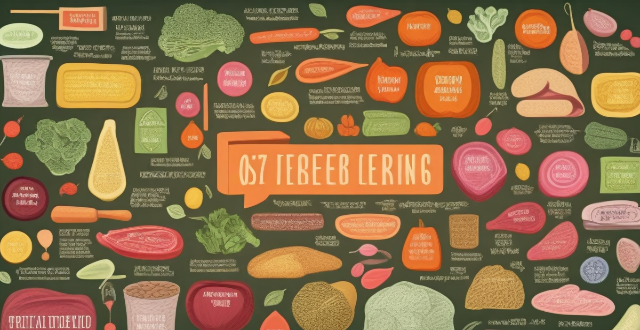
How does food labeling contribute to food safety ?
Food labeling is crucial for food safety as it provides consumers with essential information. It includes ingredient lists, nutritional information, expiration dates, manufacturing details, storage instructions, certification marks, allergy warnings, country of origin, precautionary statements, and environmental impact information. Proper labeling practices help identify ingredients, understand nutritional values, recognize potential risks, and make informed decisions about food consumption.
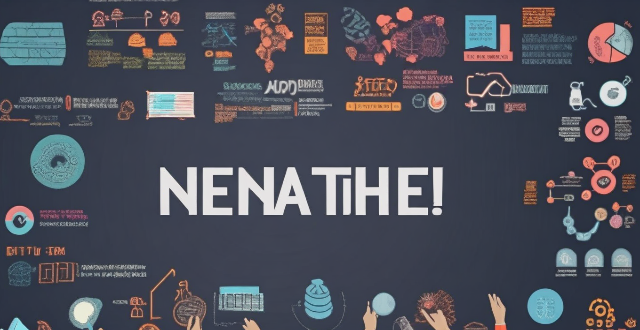
How do food festivals impact tourism in a region ?
Food festivals significantly impact tourism in a region, offering economic benefits and promoting cultural exchange. They attract visitors, boost spending, create jobs, and support local businesses. Culinary diversity, community engagement, and media exposure enhance the region's brand image. Sustainability is crucial for supporting local farmers and managing waste. Successful examples include tomato, wine & cheese, and seafood festivals. Food festivals are powerful tools for driving tourism and enriching the travel experience.

How can I reduce food waste in my kitchen ?
To reduce food waste in your kitchen, you can plan meals ahead of shopping, shop smart by making a list and buying fresh produce, store foods properly using airtight containers, understand expiration dates, preserve food through techniques like freezing and dehydrating, get creative with leftovers, practice portion control, and educate yourself on the environmental impact of food waste.

How do street food vendors keep their food safe and hygienic ?
Street food vendors play a crucial role in providing affordable and delicious meals to millions of people worldwide. However, ensuring that their food is safe and hygienic can be challenging due to various factors such as limited space, lack of proper equipment, and unpredictable weather conditions. In this article, we will discuss some effective ways street food vendors can maintain the safety and cleanliness of their food.

How has global warming affected agricultural practices and food security ?
Global warming has significantly influenced agricultural practices and food security worldwide, affecting areas such as altered climate conditions, pest and disease management, crop variety and production, and food security concerns. These changes include irregular rainfall patterns leading to droughts and floods, water scarcity, extreme temperature fluctuations causing heat waves and cold spells, increased pest infestations and new pest species introduction, elevated disease risks, changes in crop yields and shifting production regions, altered planting seasons, price volatility, supply disruptions, nutrient depletion, and loss of biodiversity. Farmers must adapt to these new realities to ensure sustainable food systems for the future.

Is organic food healthier than non-organic food ?
The debate over whether organic food is healthier than non-organic food has been ongoing for decades. While some argue that organic food offers more nutritional benefits and is better for the environment, others believe that the differences are negligible and that non-organic food can be just as healthy. In this article, we will explore both sides of the argument and try to answer the question: is organic food healthier than non-organic food? Arguments in favor of organic food include nutritional benefits, pesticide reduction, and environmental impact. Organic farming practices focus on building healthy soil and growing strong plants, which results in produce that is richer in nutrients like vitamins, minerals, and antioxidants. Additionally, organic food is grown without the use of synthetic pesticides and fertilizers, reducing the risk of harmful chemicals ending up in our food supply. Finally, organic farming practices promote biodiversity, reduce pollution, and help preserve natural resources. Arguments against organic food include minimal nutritional differences, low pesticide residues, and higher cost. While some studies have found that organic food is more nutritious than non-organic food, other research suggests that the differences are minimal. The levels of pesticides found in non-organic produce are generally well below what is considered safe by regulatory agencies, and washing produce thoroughly can further reduce pesticide residues. However, one of the biggest drawbacks of organic food is its higher cost compared to non-organic options. Ultimately, the decision of whether to choose organic or non-organic food depends on personal preference and individual circumstances. If you prioritize nutrition, reducing your exposure to pesticides, and supporting environmentally friendly farming practices, then organic food may be the way to go. However, if you are concerned about cost or believe that the nutritional differences between organic and non-organic food are minimal, then non-organic options may be suitable for you.

How can technology be used to enhance the food festival experience ?
Technology can enhance the food festival experience by offering convenience, customization, real-time updates, and interactive experiences. Online ordering platforms allow attendees to avoid long queues and have food delivered directly to their location. Mobile apps provide features like interactive maps, push notifications, and feedback systems. VR/AR technologies offer immersive experiences such as virtual food tours and interactive cooking classes. Incorporating these technological advancements into event planning can create a more enjoyable and memorable experience for all attendees while increasing engagement with the brand.

What is the future of carbon credit systems ?
The future of carbon credit systems is uncertain and depends on various factors such as policy decisions, technological advancements, public opinion, and market dynamics. Governments play a crucial role in shaping the future of these systems through regulations and enforcement. Technological innovations can both increase and decrease the value of carbon credits. Public opinion can drive demand for carbon credits, while market dynamics will shape the industry's evolution. Despite challenges, there are opportunities for growth and improvement in this important area of environmental protection.

How can consumers check if their food is safe to eat ?
Consumers can check if their food is safe to eat by checking expiration dates, looking for signs of spoilage, reading labels carefully, practicing proper food handling, and using a food safety app.

What strategies can be implemented to mitigate the effects of climate change on food systems ?
Strategies to Mitigate the Effects of Climate Change on Food Systems include sustainable agriculture practices, agroforestry and reforestation, climate-resilient crop breeding, livestock management, food waste reduction, policy and advocacy, and research and development. These efforts aim to build more resilient food systems capable of withstanding the challenges posed by climate change, ensuring food security for future generations.

How can wind energy contribute to a sustainable future ?
Wind energy is a renewable and sustainable source of power that can significantly contribute to a more sustainable future. It offers several benefits including reducing carbon emissions, stimulating economic growth, enhancing energy security, driving technological innovation, compatible land use, community engagement, scalability, improving health impacts, and promoting education and awareness. By incorporating wind energy into our energy mix, we can create a cleaner, healthier, and more sustainable environment for future generations.

How can climate models be used to improve agricultural practices and food security ?
Climate models play a critical role in enhancing agricultural practices and ensuring food security by forecasting weather conditions, mitigating climate change effects, enhancing crop yield potential, and aiding in policy making. Applications include adapting to climate variability through crop diversification and improved plant breeding, strengthening resilience through water management and soil health maintenance. The use of these models is crucial for adapting to changing environmental conditions and ensuring global food security.
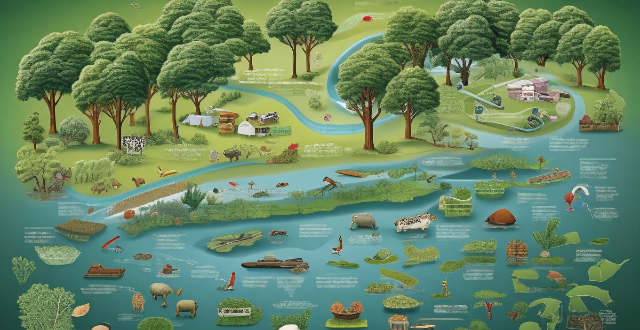
How do rising temperatures and altered precipitation patterns influence crop yields and food availability ?
This article explores the impact of global climate change on agriculture, specifically focusing on rising temperatures and altered precipitation patterns. It highlights how these changes can affect crop yields through increased evapotranspiration, altered growth cycles, pest and disease pressure, and changes in pollination. Additionally, it discusses how rising temperatures can impact food availability by altering the distribution of crops, increasing post-harvest losses, and causing market price fluctuations. The article also examines the effects of altered precipitation patterns on crop yields and food availability, including water stress, nutrient leaching, flooding, soil erosion, and irrigation needs. Finally, it emphasizes the importance of understanding these impacts and developing strategies to mitigate their effects on crop yields and food availability to ensure food security for future generations amidst a changing climate.

What is the future outlook for private equity ?
Private equity (PE) is a dynamic sector of the financial industry that involves investing in or acquiring companies, typically with the aim of improving their operations and selling them at a profit within a few years. The future outlook for private equity is influenced by various factors such as economic conditions, technological advancements, regulatory changes, and market trends. Here's a detailed analysis of what the future might hold for private equity: Economic Influences: Global Economic Growth, Interest Rates, Market Volatility Technological Advancements: Digitization, Artificial Intelligence and Machine Learning, Blockchain Regulatory Changes: Stricter Regulations, Tax Laws Market Trends: ESG Investing, Diversification, Exit Strategies Industry Evolution: Consolidation, Secondary Markets, Direct Investments Challenges and Opportunities: Competition, Talent Retention, Innovation In conclusion, the future of private equity looks promising but not without its challenges. The industry is set to evolve with changing economic conditions, technological advancements, regulatory shifts, and market trends. PE firms that adapt and innovate will be well-positioned to thrive in this dynamic environment.